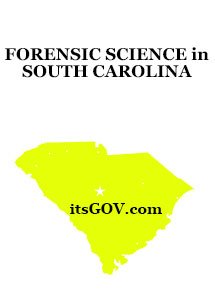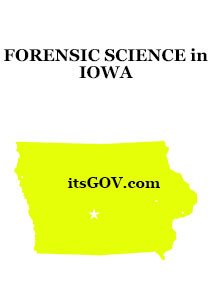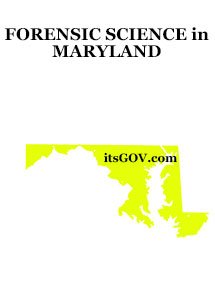Forensic Science
Forensic science combines science and investigation in order to aid and support the prosecution or defense in criminal and civil investigations. While the profession has been widely romanticized by various TV shows, make no mistake – this job is most likely different that you expect. In contrast with popular perception, this is a highly scientific role, which often involves detailed, painstaking work. Field duties are limited to a few areas of expertise, and most often than not a forensic scientist will spend his time in the lab.
If you made it this far, though, congratulations! You’re taking the first steps in joining a very rewarding profession and itsGOV is here to guide you through what you need to know and what you need to do to join a forensic science program in South Carolina.
Depending on the type of forensic science practiced, different degrees and educational backgrounds may help a candidate get a job and excel in this field. Regarding formal education, requirements vary across jobs, but you should definitely have a solid background in mathematics, biology and chemistry.
The National Institute of Justice, a division of the U.S. Department of Justice, offers guidelines for model undergraduate and graduate forensic science degree programs. According to the American Academy of Forensic Science, strong programs should offer a curriculum that concentrates on scientific writing, laboratory skills, public speaking, and computer software application training.
Forensic Science Requirements in South Carolina
Forensic science specialists working in South Carolina play an important role in securing criminal convictions and taking dangerous persons off the streets. Earning an average of $44,750 last year, South Dakota’s forensic technicians also testified in court to explain their analysis of evidence when requested to do so by either the defense or prosecution. South Carolina has a highly competitive market for forensic science jobs, which are available to qualified candidates who possess the right combination of education and experience.
Forensic scientists commonly work in a lab environment with the following agencies across the state:
- South Carolina Law Enforcement Division located in Columbia
- Forensic Division of the Greenville County Department of Public Safety
- Forensic Services Unit of the Charleston County Sheriff’s Office, serving county locations including Charleston and North Charleston
Forensic Science Training in South Carolina
Due in part to the popularization of the forensic science field on television, jobs in this field tend to be competitive. Having a forensic science degree or majoring in a related field can help candidates be better prepared to go head-to-head with their competition.
An associate degree in any of the following fields can mean a leg up in the application process, and having a bachelor’s degree will give candidates a greater level of expertise and career mobility:
- Criminal Justice
- Biology
- Chemistry
- Genetics
- Criminalistics
- Biochemistry
The requirements for how to become a forensic scientist in South Carolina have some variation depending on the hiring agency. For example, working as an entry-level forensic technician with the South Carolina Law Enforcement Division requires at least a high-school diploma and either lab or information management experience, while working as a criminalist with the same agency requires a high school diploma and law enforcement experience, with the option to substitute a bachelor’s degree in any field for the law enforcement experience requirement.
In 1961 a Columbia taxi driver was found robbed and shot in the head. One month later a suspect was arrested in Tennessee on unrelated charges and police discovered he had a gun that matched the caliber and probably the model of the gun that was used in the Columbia murder, but ballistics tests at the time were unable to prove this beyond a reasonable doubt.
More than three decades later a chance encounter between one of the victim’s family members and investigators prompted the case to be re-opened, and using modern technology and ballistic analysis methods, forensic scientists were able to determine conclusively that the man arrested in Tennessee was indeed in possession of the murder weapon. 41 years later, the suspect in the case received a life sentence for the killing.
Forensic Science Salary in South Carolina
According to the Bureau of Labor Statistics (BLS), the eighty forensic science technicians employed in South Carolina made an average annual salary of $44,570 in 2012. Experienced professionals in the 90th percentile made $70,790 that year on average.
South Carolina Works Online Service provides this information from 2012 for two workforce regions in the state. Forensic science technicians in these areas made the following amounts on average:
- Midlands: $33,461
- Trident: $41,693
The wages for these types of jobs have been increasing substantially in South Carolina in recent years according to an analysis of the wages of new jobs advertised online. From June 2007 to January 2008, the advertised wages increased by 63%.
Salary information for 2013 is available for a forensic scientist position in the state. A forensic technician II – toxicology made from $25,627 to $47,412 in Richland County.
While many forensic scientists work in the lab, others work in the field processing crime scene evidence. Such crime scene investigator (CSI) positions can be comprised of sworn officers or civilians, depending on the department. According to Indeed.com, the average CSI in South Carolina made $53,000 in the year leading up to October 2013.
Forensic Science Schools and Colleges in South Carolina
Bachelor’s Degree Programs in South Carolina
| University | University of South Carolina Upstate, Forensic Science Concentration B.S. |
| Duration | 4 years |
| Type | Full time, Part time |
| Tuition and fees | $22,467 per year |
| Program link |
Master’s Degree Programs in South Carolina
There are currently no master’s degrees programs offered in South Carolina.




